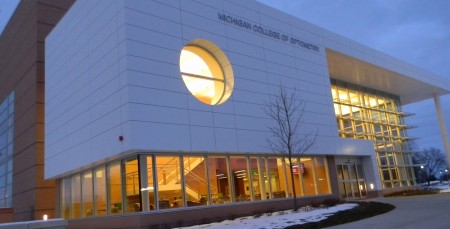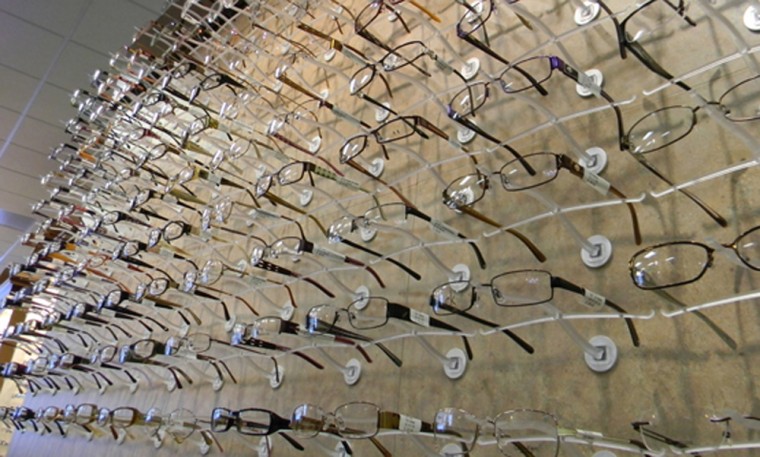
The Michigan College of Optometry (MCO) building project, also known as The Center for Collaborative Healthcare Education, was officially finished on the planned date of Jan. 3, 2011. Faculty members were able to move in Jan. 3, as classes started on Jan. 10.
While overcoming challenges such as building on contaminated soil from an old landfill, digging a basement and building a new parking lot, the typically 18-month long project took only 13 months to complete. Associate Vice President for the Physical Plant Michael Hughes said the weather has not postponed the project’s construction schedule in any way. “We have not lost a single day to this job and we have been able to build on schedule,” said Hughes.
The optometry program offered at Ferris State is one of few in the country.
“There are currently 20 schools and colleges of optometry in the U.S. and Puerto Rico, and two more in Canada,” said Dean of the College of Optometry Michael Cron. With over 140 students currently enrolled in the optometry program, the building has been designed to hold a larger student body.
“If the applicant pool of prospective students and the demand for optometrists increase, we are prepared to gradually increase class sizes,” said Cron.
With just a few finishing touches added over the holiday break such as final inspections, installing audio visual technologies and furniture, the building will offer specific classes for the optometry program as well as an open clinic to the public.
The clinic, located on the first floor, serves the surrounding five county areas. The second floor holds space for faculty members and classrooms, while the third floor offers clinical lab space.
“General eye exams in our primary care clinic will continue to be available, as well as all of our specialty services in contact lenses, pediatrics, low vision and vision rehabilitation and medical-surgical services,” said Cron.
The MCO building project is the first at the university to be LEED (Leadership in Energy and Environmental Design) certified, which entails special lighting inside the building. The new facility will continue to offer comprehensive eye and vision services.
“We will also continue our collaborative wellness clinic for diabetic patients and individuals with other chronic health conditions that have a vision component,” said Cron.

“Anytime we get one done and exceed expectations, we are pretty excited about that,” said Hughes. n
